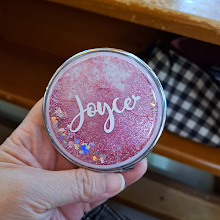Aunt Flo returned when my baby turned 11 months. Was I surprised? Not entirely. I know her return is imminent; it's just a matter of time.
When will the first period return?
A few factors:
- How frequently the baby is nursing;
- How often the baby is supplemented with bottles;
- If baby takes a pacifier;
- How long the baby is sleeping at night;
- If solids have been introduced; and
- The mother's own individual body chemistry and the way it responds to hormonal influences associated with breastfeeding.
Any time the stimulation to the breast is decreased, especially at night, menstruation is likely to return soon after. As baby nurses less frequently, prolactin (milk-making hormone) levels fall, reproductive hormones rise, and fertility returns, i.e. period returns.
The main thing is this: the more frequent you nurse your baby at your breasts (day and night), the later Aunt Flo returns. In my case, I nurse my baby whenever I'm with him. He's not bottle-fed at home and he never uses the pacifier. At night, he wakes up every 2-3 hours to nurse.
The main thing is this: the more frequent you nurse your baby at your breasts (day and night), the later Aunt Flo returns. In my case, I nurse my baby whenever I'm with him. He's not bottle-fed at home and he never uses the pacifier. At night, he wakes up every 2-3 hours to nurse.
I returned to work when he was 3 months plus; he started on solids when he was 6 months old; my period returned when he turned 11 months. Not too bad, although I secretly hope the red tide never returns for as long as he's still breastfeeding. Hahaha! By the way, I'm still breastfeeding although he's officially a one-year-old tot. :)
What might happen when Aunt Flo returns?
The most important thing to remember is that the return of period does not mean the end of breastfeeding. The milk does not sour or "go bad" when you are having a period. The milk is no less nutritious when you are menstruating than when you are not.
These temporary changes might happen: nipple tenderness (I don't feel this), temporary drop in milk supply the few days prior to getting your period and for a few days during (yeah, this is annoying!), baby wanting to feed more frequently due to the temporary drop in milk supply (I think so), or baby wanting to feed less, as your baby may detect a slight change in taste during this time (not in my case).
What to do to during temporary drop in milk supply?
Some women experience a drop in milk supply from ovulation (mid-cycle) until the first day or two of the next menstrual period. A woman's blood calcium levels gradually decrease during this period of time, and for some women the drop in blood calcium causes a drop in milk supply. For women who have this problem, calcium/magnesium supplements may be helpful. This practice has also been reported to eliminate most uterine cramping and some premenstrual discomfort such as water retention.
The recommended calcium supplement dosage is between 500mg calcium/250mg magnesium and 1500mg calcium/750mg magnesium (the higher dosage is generally more effective). Calcium dosages this high should not be taken alone, but as a calcium/magnesium (or calcium/magnesium/zinc) combination. Otherwise the calcium will not be adequately absorbed into your body.
The amount of supplement depends on the composition of your diet -- the more animal protein, the more calcium/magnesium needed. If you are a vegetarian or vegan, the lower dosage may work fine for you. Start the supplement when you ovulate, and continue through the first few days of your menstrual period. If periods are irregular, then begin calcium/magnesium at 14 days after the beginning of your last menstrual cycle, or simply take the supplement every day.
Article sources:



























Great info, Joyce.
ReplyDeleteThanks Rose!
Delete